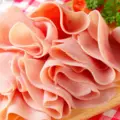Do you love bread or pasta? Do you know the main protein that keeps the bread intact? The protein we are talking about is gluten. Therefore, it is the “glue” that makes bread stick together.
Gluten is a protein found in wheat, barley, and rye. It is not harmful per se, but some people are intolerant to gluten. Diseases like celiac sprue or gluten-sensitive enteropathy or more popularly known as celiac disease.
The issue with this disease is that it damages the small intestines lining when one consumes gluten. People who are intolerant to gluten must change their diet and go gluten-free.
A gluten-free diet is not an easy diet, necessarily. One may think all you have to do is buy the gluten-free products, but there are other issues with going gluten-free like:
- Gluten-free products may be more expensive.
- The non-gluten products don't taste the same as gluten products.
- Not every gluten product has a non-gluten alternative.
- One has to leave wheat and pasta, as they have gluten.
- Gluten is hard to digest.
Enough about all the negativity; let's look at the greener side. Firstly, if you are gluten-intolerant, going gluten-free will heal the wounds given by gluten to your stomach and intestines. Therefore, non-gluten products means switching to those food items that are naturally gluten-free, like fresh vegetables and fruits, and the best part is they have the most nutritious value.
Gluten And Carbs

Do you know the value of carbohydrates in a diet?
They are the most important source of energy. Carbohydrates are as essential as fuel is to the car; it works as fuel for the kidney, nervous system, and brain. Carbohydrates also keep us full and content and our blood pressure in check.
Similarly, saying no to gluten products doesn't mean you have to remove essential proteins and vitamins from your diet chart. This article is here to provide you with a list of items that have lots of carbs to keep your body fueled.
First, let's ensure the food items that must be on your gluten-free diet.
- Fruits
- Vegetables
- Meat
- Dairy
- Poultry
- Fish
- Beans and nuts
Naturally Gluten-Free Foods

The grains and other starch-containing foods below are naturally gluten-free and are the best Carbs to eat on a gluten-free diet:
- Quinoa
- Potato
- Cassava
- Millet
- Tapioca
- Chia
- Nut Flours
- Amaranth
- Sorghum
- Arrowroot
- Rice
- Oats
But this isn't as easy as it looks because there is one error found in the naturally found gluten-free food. The error is cross-contamination.
The food mentioned above might be naturally gluten-free, but it might have been in contact with gluten products. An example of this would be during the processing and manufacturing of gluten-free oats, they might have been in contact with gluten products, and then they are contaminated.
It is easy to avoid for those who choose to go gluten-free on their own, but other people who are gluten insensitive might have to pay a high price for overlooking this element.
List Of Carbs You Can Eat On A Gluten-Free Diet

As mentioned earlier, the foods that naturally contain carbohydrates and protein are best for your gluten-free diet. And nowadays, people and manufacturers are more aware of the issues with gluten.
So, they are many alternatives available for gluten products, and they come with a gluten-free product label. For instance, our current food industry is trying its best to provide gluten-free food items for those looking to heal their intestines. Try to include minimally processed food. It is essential for no-gluten people.
Try to cover your diet with natural food items and have carbs on a gluten-free diet like vegetables, fruits, meat, poultry, seafood, etc., that are naturally gluten-free.
However, someone who plans to go gluten-free must be cautious of certain ingredients and words. Remember to pick those items that are labeled as gluten-free only. For instance, some products label themselves as wheat-free, and the buyer may assume that wheat has gluten, so if “no wheat, then no gluten.”
But that is not the case. Something that comes with a wheat-free or barley-free label doesn't mean it is gluten-free. In other words, such products might have added flavorings or other preservatives with gluten content in them. So beware of such similar-looking words, or else you might end up upsetting your stomach.
In addition, the conventional wheat products have gluten like pasta, bread, crackers, and similar baked goods. But there are alternatives available for a gluten-free diet:
- Gluten-free pasta
- Gluten-free bread
- Sourdough bread
- Gluten-free flour
Now to the main point, the crucial carbohydrates are essential to have in a balanced diet.
What Carbs Can You Eat On A Gluten-Free Diet

1. Cereal
Traditionally gluten has wheat or gluten-based ingredients but don't lose hope if you love cereal. Try looking for gluten-free labeled cereals in the grocery aisle.
And if you have time to go through the cereal ingredients, you might get lucky as many kinds of cereal are gluten-free but aren't labeled. Speaking of ingredients, if you find malt flavoring or extract, then put back the cereal as it contains gluten.
2. Oats
Oats should be a must on your grocery list for a balanced diet. The only issue with oats is that they often go through wheat equipment processing. And what is a big no for your diet? Researchers have done experiments that state that uncontaminated foods such as oats are okay for gluten-sensitive people to digest easily.
Try looking for gluten-free oats and look for the label in your favorite granola bars too.
3. Soups and Sauces
Soup and sauces are high in carbs but can have hidden gluten. So be a little more careful with those canned soups and sauces. Everybody loves their soup thick, but usually, while processing soup, wheat is used as a thickener, and wheat brings its little friend “gluten.”
So, keep your eyes open and pick the gluten-free soups and sauces, or the ingredients must not have any gluten-containing elements.
4. Packed Goods
Fresh fruits and vegetables naturally have no gluten and are a good source of carbs and fibrous value. But read the label of processed fruits and vegetables and pre-made smoothies.
The packaged food might have preservatives that contain gluten, so keep an open-eye for them.
5. Beverages
When you feel the need to relax with an alcoholic beverage, what can you choose? Usually, any distilled liquors and hard cider are gluten-free. On the other hand, beer may have gluten-containing products, but nowadays, several brands are gluten-free, so check their label.

6. Rice
Rice is high in carbs and gluten-free. The best rice that should be on your list is white rice, brown rice, wild rice, and basmati rice.
7. Popcorn
If you make popcorn at home in your popcorn maker from the kernels, then make as much popcorn as your heart desires, as it is naturally gluten-free.
But popcorn available at cinemas and the microwaveable bags of popcorn made in three minutes has added flavors that are an absolute no as they have gluten flavored coatings. Popcorn has complex carbs that are good for you as an occasional snack.
8. Potatoes
Potatoes are also high in carbs and contain absolutely no gluten, but be cautious that you are not adding any flavorings that contain gluten to your potato.
9. Beans
Legumes are gluten-free and a good source of carbs but not the canned and processed beans. Again, be cautious of any added flavorings and sauces. They might have wheat or soy, which means gluten. Other than that, cross-contamination can be a factor. So go for gluten-free products to eliminate the option of cross-contamination.
10. Sorghum
Have you heard of this grain? Found in the plains of Africa, the best thing about sorghum is that it is gluten-free and is also rich in antioxidants, vitamins, and is easy to digest—all in all, a win-win for gluten-sensitive people.

11. Quinoa
It is delicious, high in proteins, and is naturally gluten-free. It is a perfect product for celiac disease people as it has lots of minerals and b-vitamins.
12. Millet
It is a grain that makes bread. It is naturally gluten-free, and the best part is millet has far more minerals than wheat. But don't just blindly but millet-bread as there may be other ingredients that have gluten. Go for gluten-free millet bread.
13. Buckwheat
No, there is no mistake in adding this food item. There might be wheat in the name, but the food is gluten-free.
14. Amaranth
High in protein, it is a grain found in South America. Amaranth comes with proteins, minerals, and amino acids, and of course, it contains carbs as well. It is such a fantastic grain; it can do almost everything:
- Amaranth can be a substitute for rice.
- Substitute for soup
- Used as porridge
- And you can pop it and eat it like popcorn
15. Sweet Corn And Sweet Potato
Both are carbs packed with fiber. And both are gluten-free.
16. Gluten-Free Pasta
Who doesn't love pasta, but the standard wheat and durum pasta have wheat, so they are a clear no for gluten-sensitive people. But don't worry, here we have gluten-free pasta that one can quickly cook and eat at home.
Gluten-free pasta has significant carbs to balance ones' diet. But don't make this a part of the weekly diet as some other veggies and fruits are vital for you to intake.
Benefits Of A Gluten-Free Diet

Gluten is not a harmful protein; however, some people are sensitive to gluten, and they must only intake gluten-free food items. A few years ago, buying gluten-free products was difficult, but now there is an alternative for every gluten-product.
There are many benefits of a low-carb, gluten-free diet.
· Promotes healthy weight gain
If you are gluten intolerant, eating gluten products includes bloating, fatigue, and gas. And this might also lead to severe nutritional deficiency and sudden weight loss. But going on a gluten-free diet will regain the weight in a healthy weight and balance out the nutritional value.
· Eliminates bloating
Having celiac disease or a weak intestinal lining can damage the stomach. Above all,, going gluten-free will eliminate the damage to the stomach and intestinal lining. Going gluten-free will provide relief from digestive distress.
· Improves energy levels
People who suffer from gluten sensitivity have also been linked to having chronic fatigue syndrome. Sometimes people overlook these symptoms as typical ailments, but this can lead to severe health issues. Going gluten-free can heal these ailments, and one can regain better energy levels.
Final Words

When one chooses to go gluten-free, it is typically due to health issues. If you do not have celiac disease, we would suggest contacting a nutritionist. For instance, a nutritionist can understand your health issues systematically and adequately.
Consulting a nutritionist can help you understand the disease and health ailment professionally.
They will also help guide you with a proper diet balanced with carbs, protein, vitamins, and fiber.
Starting on a gluten-free diet is the best decision for celiac disease or gluten intolerant people. The protein in gluten is not an essential protein for the body and is hard to digest.
Ultimately you can eat carbs naturally in your foods on a gluten-free diet.





